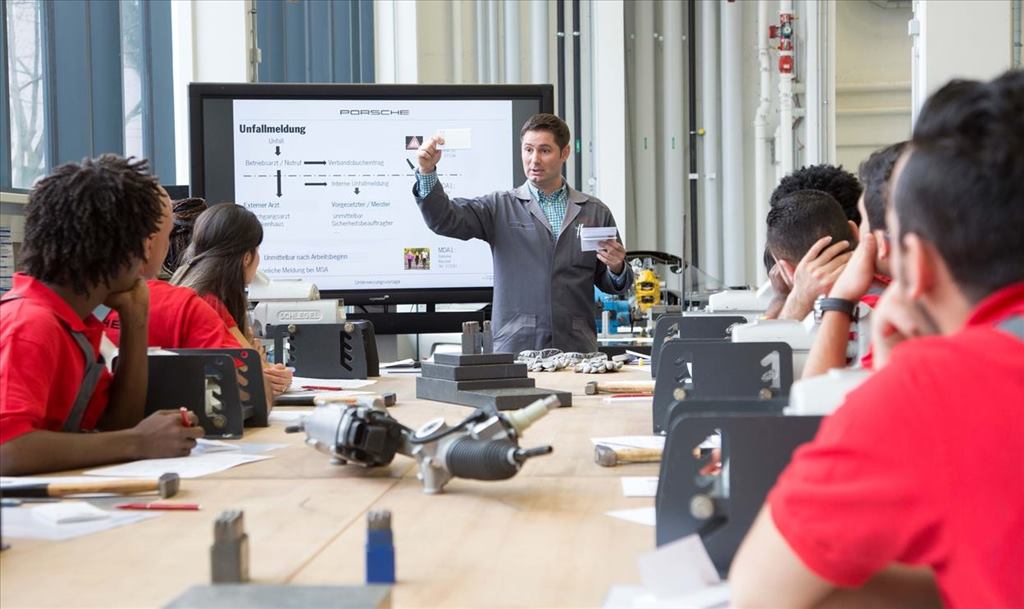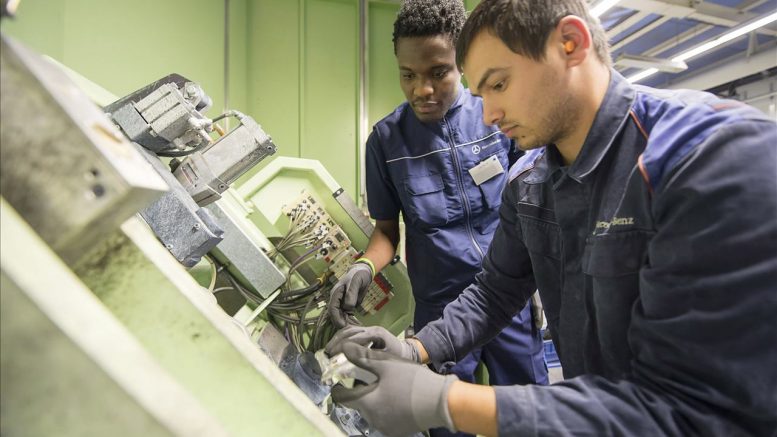Luxury carmaker Daimler is helping refugees and migrants in Germany boost their skills and find work with an innovative programme that will, by the end of the year, have seen almost 600 take part in its “bridge internship” programme.
The company – which in Germany alone employs people from 140 different nationalities – has worked closely with the Federal Employment Agency and the relevant job centres to place people on the 14-week course that also helps participants find jobs in other companies.
“We see it as our social responsibility to use our infrastructure and financial power to support job integration with the bridge internship”, a spokeswoman for Daimler told Chief-Exec.com yesterday.
The participants – from Afghanistan, Eritrea, Gambia, Nigeria, Pakistan and Syria, aged 20-51 – learn about various areas of production, including logistics, preassembly, the assembly of powertrain components, truck or passenger cars, depending on their plant placement. They also study German to help better pave their way into the German labour market.
In the Mercedes-Benz plant in Stuttgart-Untertürkheim alone, more than 30 interns received job offers from SMEs or temporary working agencies and two began vocational training at Daimler. Fifty apprenticeships have also been offered across Daimler.
The spokeswoman said the programmes for the professional integration and training of refugees were on top of “standard offers” of work and did not deprive other applicants of a chance to work or train at Daimler.
Prestige sports carmaker Porsche will next month begin training 15 refugees from a variety of countries as part of its commitment to investing in skills and integration.
The preparatory year – an additional preliminary stage before starting an apprenticeship – was the brainchild of the company’s managing board and workers council.
“We wanted to develop a comprehensive programme that facilitates practical integration and provides refugees with prospects for employment that are sustainable and as realistic as possible,” Andreas Haffner, a member of the executive board for human resources and social affairs at Porsche, said.

Skills boost: the preparatory programme was the brainchild of Porsche’s managing board and workers council
Applicants are mainly recommended through schools and then take part in a rigorous application process. A residence permit is obligatory as is a rudimentary knowledge of German. Successful applicants receive a small salary.
Porsche trains 150 young men and women each year: 34 graduates from the Baden-Württemberg Cooperative State University, 10 apprentices in the commercial field and 106 in the technical-industrial field.
Part of the Volkswagen group, Porsche said the 15 refugees – men and women – would be given the opportunity to develop their language, cultural and technical skills over the next 10 months.
“The goal is to improve their opportunities in the employment market and lead them towards an apprenticeship or even direct employment,” a Porsche spokesman said.
This is the second group of refugees Porsche has worked with. The first integration year group exceeded the company’s expectations, with 11 of the 13 refugees, aged 16-38, continuing to work at the company.
The other two would remain at school for another year to improve their German language skills.
The 11 men and women from Afghanistan, Eritrea, Iraq, Iran, Pakistan and Syria were taking different paths at Porsche. Two would continue to take part in the Porsche preparatory year. Two had passed the aptitude tests for an apprenticeship and would be trained as either a vehicle interior fitter or an automotive mechatronics specialist, focusing on passenger car technology.
The other seven participants were being assigned to production and logistics, initially for a period of one year. They are committed to continuing work on their German language skills in their own time, allowing them to meet the requirements for an apprenticeship or for continuing work in the relevant specialist departments within production and logistics, depending on their age.
By Aban Contractor




